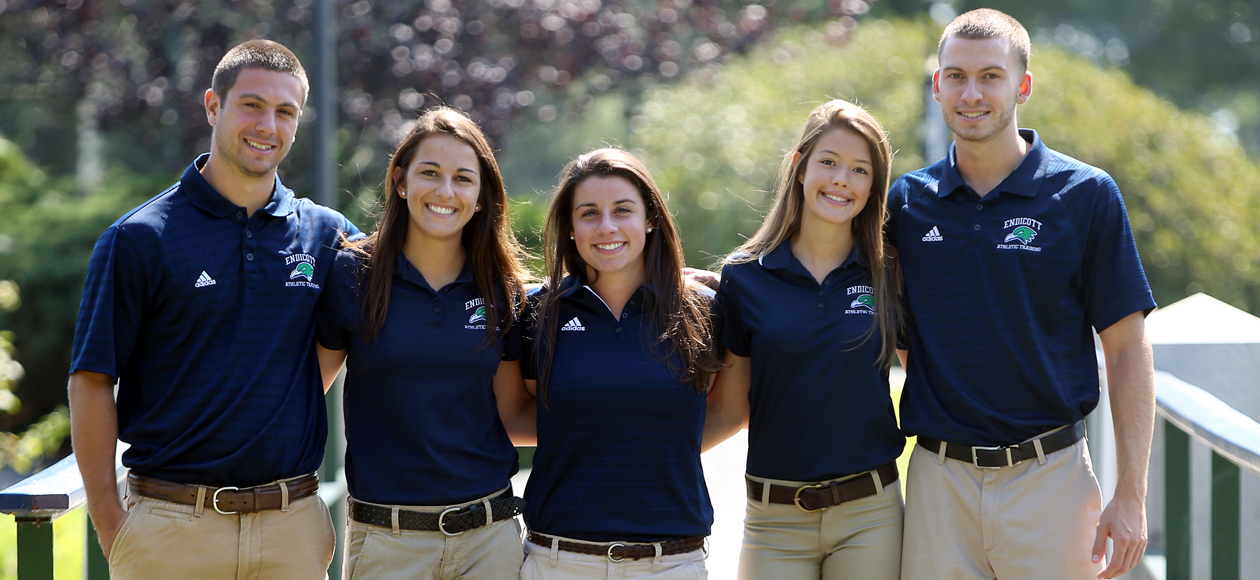
|
BEVERLY, Mass. – On Friday, March 4th, 2016, members of the Endicott community gathered together to help promote the athletic training profession in conjunction with National Athletic Training Month (NATM).
More than 60 athletic trainers, undergraduate athletic training students, student-athletes, coaches, and students participated in the first annual Athletic Training Bowling Tournament held at the Andy's Sunnyside Bowladrome in Danvers, Massachusetts.
"It was a great night to support the athletic training profession with music, tons of laughs and fun," said Haliegh White, a junior in the Athletic Training Education Program at Endicott and President of the Endicott Athletic Training Club.
James Daley, the Associate Head Athletic Trainer at Endicott, also echoed White's sentiments.
"I am extremely proud of the work that the students and our staff put into this project. It was a tremendous step in recognizing our profession and I cannot thank those that participated enough," said Daley. "We hope to continue this event each year and increase the number of those involved to promote athletic training and educate others about what we do. The pride the athletic training students felt was evident."
The proceeds from the event will be used for continuing education opportunities for the members of the Athletic Training Club and a donation will be made to the National Athletic Trainers' Association Research and Education Foundation.
Key Takeaways From National Athletic Training Month
Athletic trainers are experts
Working to prevent and treat musculoskeletal injuries and sports-related illnesses, athletic trainers offer a continuum of care unparalleled in health care. ATs are part of a team of health care professionals – they practice under the direction of and in collaboration with physicians. ATs work with those individuals who are physically active or involved in sports participation through all stages of life to prevent, treat and rehabilitate injuries and medical conditions. Athletic trainers should not be confused with personal trainers or "trainers" who focus solely on fitness and conditioning. Always refer to an "athletic trainer" or "AT" to ensure clarify of profession and quality of care.
Athletic trainers save lives
The athletic trainer is the health care system for athletes and others
Athletic trainers take responsibility and lower risk
School administrators, athletics directors and coaches have their own jobs, which may pose a conflict of interest with athlete safety; they are not experts in managing injuries or sports-related illnesses, nor should they be responsible to do so. Handling injuries at school or at work, rather than sending the patient to the emergency department, saves money and time loss – and gets them back to their activity faster. Just as professional athletes do, recreational athletes should have access to athletic trainers.
Athletic trainers must be accredited
Athletic trainers must complete education requirements through a Commission on Accreditation of Athletic Training Education (CAATE) accredited program, pass a national certification exam and must be licensed in the state of Massachusetts as an Allied Health Professional to be able to practice.




